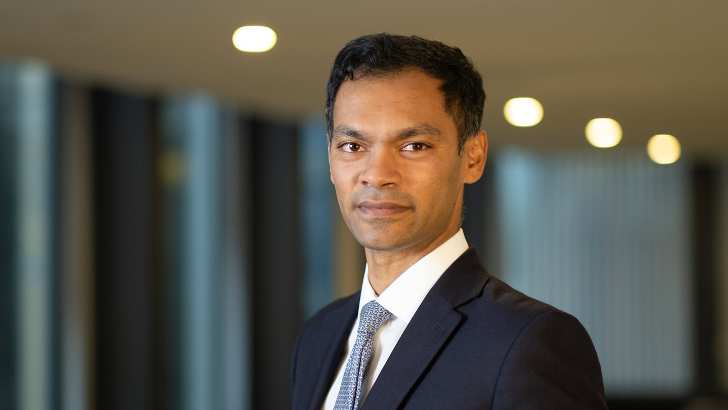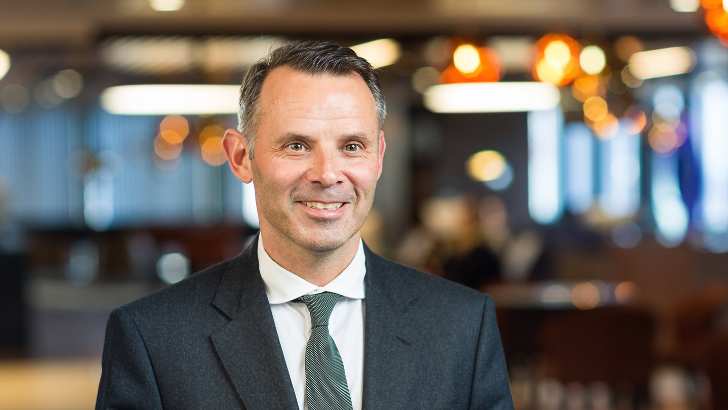Accelerating change for a better tomorrow
Real change requires a radical overhaul of the world economy. As a firm committed to building a sustainable world, we structure our investment research, company engagement, and macro stewardship activities around three key pillars: People, Earth and Climate. These represent what we believe to be the biggest sustainability challenges in the world today, namely social inequality, biodiversity loss and climate change.
Our Sustainable Transition range targets opportunities linked to the United Nations Sustainable Development Goals that support and accelerate the transition to a sustainable future towards a socially just, nature positive and net zero economy.
People
Social inequality in its multiple guises such as income, race and gender pose a systemic risk to society and the wider economy.
Climate
The scale and urgency of change needed to address climate change and ensure global greenhouse gas emissions are aligned with a 1.5 degrees Celsius pathway will impact every part of the global economy.
Earth
The risks associated with biodiversity loss and the erosion of nature are frequently overlooked by the market. This often results in the mispricing of companies with significant impacts or dependences on nature.
Please note each approach will differ in terms of its objective - please see below strategies in focus for more detail.
Transition strategies in focus
Strengths
Complex sustainability challenges cannot be addressed by investing in solutions alone. We believe a broader cross-section approach to transition is required to maximise long-term return while seeking a positive contribution in the transition to a more sustainable future for People, Climate and Earth.* Our proprietary approach to sustainable transition is applied consistently across asset classes and leverages the following key strengths:
Backing transition
Proprietary approach across asset classes to identify opportunities that are best supporting and benefiting from the transition to a sustainable future.
Investing with purpose
Dual mandate aiming to deliver returns over the long term and support the sustainable transition.
Specialist teams
Sustainable analysts support portfolio managers** to identify opportunities, while leveraging expertise from the broader sustainable investing team and investment platform.
*While our People, Climate and Earth pillars are strategy specific, all strategies in the range have an overarching theme of supporting sustainable transition.
**Beyond any binding constraints in the prospectus or IMA and Baseline Exclusions Policy, the investment manager retains discretion over decision making taking into account ESG risks alongside other factors.
Key risks
Full information on specific risks and risk profiles of each of our funds please refer to the relevant Prospectus and the Key Investor Information Document (KIID).
Investment risk and currency risk
The value of an investment and any income from it can go down as well as up and can fluctuate in response to changes in currency and exchange rates. Investors may not get back the original amount invested.
Equities risk
Equities can lose value rapidly, can remain at low prices indefinitely, and generally involve higher risks — especially market risk — than bonds or money market instruments. Bankruptcy or other financial restructuring can cause the issuer's equities to lose most or all of their value.
Counterparty risk
The Fund could lose money if an entity with which it does business becomes unwilling or is unable to meet its obligations to the Fund.
Emerging market risk
Investments can be made in emerging markets. These markets may be volatile and carry higher risk than developed markets.
Derivatives risk
Investments can be made in derivatives, which can be complex and highly volatile. Derivatives may not perform as expected, meaning significant losses may be incurred.
Specialist fund risk
Certain investments in the fund may be more susceptible to foreign government policies, including tax incentives and subsidies, as well as political support for certain environmental initiatives and developments. Under certain market conditions, the fund may underperform funds that invest in a broader array of shares in global companies, for example, funds that do not provide any screening of companies undertaking fossil fuel activities.
Credit and interest rate risk
Bond values are affected by changes in interest rates and the bond issuer's creditworthiness. Bonds that offer the potential for a higher income typically have a greater risk of default.
Sustainability Risk
The level of sustainability risk may fluctuate depending on which investment opportunities the Investment Manager identifies. This means that the fund is exposed to sustainability risk which may impact the value of investments over the long term.
Real estate risk
Investments in real estate may not be able to be sold, realised or liquidated when you want because real estate assets may not always be readily saleable. If this is the case, we may defer your request or instruction regarding your investment. Investors should also bear in mind that the valuation of real estate is generally a matter of valuers’ opinion rather than fact.
A globally integrated team with extensive experience

Sam Tripuraneni
Head of Sustainable Investments

Daniel McHugh
Chief Investment Officer

Isabel Emo Capodilista
Head of Equities

Darryl Murphy
Managing Director, Infrastructure
Our responsible investment views
-

Economic Research
Boosting low-carbon investment in the UK: A Policy Roadmap
16 Jul 2024
Our in-depth Roadmap for the UK’s journey towards a low-carbon economy contains policy recommendations to unlock private investment in the transition.
-

Responsible Investing
The future of green premia in real estate, part two: Searching for value and resilience
8 Jul 2024
Do energy-efficient buildings have more pricing power, and what could that mean for those investing in the built environment? We bring together the views of leading capital markets researchers, a valuer and an asset manager for the second part of our deep dive into green premia, analysing the investment implications.
-

Responsible Investing
The future of green premia in real estate, part one: The view from the ground
27 Jun 2024
Do greener buildings have more pricing power, and if so, how much? We bring together the views of leading capital markets researchers, a valuer and an asset manager for a two-part deep dive on the latest market dynamics.
-

Economic Research
Blueprints for a greener economy: Creating a transition planning ecosystem
25 Jun 2024
National transition plans can give investors support, confidence and direction to accelerate the flow of finance to bring about a low-carbon economy. As such, they should be seen as a strategic opportunity.
-

Economic Research
Nothing to fear: Sustainable investing trade-offs
19 Jun 2024
Sustainable investing, and the supposed trade-offs involved, have been a topic of heated debate. But trade-offs are a fundamental part of all types of investment; the key is to be clear about your objectives, as Mirza Baig explains.
-

Equities
The war on bugs: Climate change contributes to growth in the pest-control industry
13 Mar 2024
Pest control has become a growing priority for city residents and authorities all year round, as rising temperatures and other factors boost the populations of many pest species. But in creating adaptation solutions, the sector could also represent a long-term investment opportunity.
-

Responsible Investing
Common ground: Earning a social licence to operate in real asset investing
18 Jan 2024
Successful real asset investing requires acceptance of asset managers’ practices and procedures from a variety of stakeholders. We explore what this means for managers, their clients and investment outcomes.
-

Pensions
Plus ça change…The outlook for infrastructure debt in 2024
11 Jan 2024
Infrastructure demonstrated characteristic resilience in 2023 in the face of significant macroeconomic headwinds. Darryl Murphy from our infrastructure team explains why he expects current themes to persist in 2024.
-

Real Assets
Tech, trees and tailwinds: The outlook for climate transition real assets
9 Jan 2024
In this Q&A, James Tarry and Luke Layfield explore the themes shaping the landscape for real asset investors with a climate transition focus.
-

Responsible Investing
Changing course: Creating a stable investment framework for offshore wind
30 Nov 2023
Better market mechanisms and grid connection arrangements are essential to restore a stable investment environment in the offshore wind sector, as Nick Molho explains.
-

Economic Research
The tipping point for climate finance: Making financial flows consistent with the Paris Agreement
29 Nov 2023
Transition plans, including from governments in response to the Global Stocktake, will be crucial to bring about the shift to a low-emissions, climate-resilient world. Markets need clear implementation signals to align capital with the goals of the Paris Agreement. Our in-depth report calls for the creation of a transition-plan ecosystem connecting all levels of the global economy.
-

Fixed income
The time to lead: Reforming multilateral development banks through a climate lens
28 Nov 2023
To have a chance of limiting global warming to less than two degrees, the world must unlock huge investments in emerging markets. This is prompting calls for the reform of multilateral development banks, but will this be enough?
-

Economic Research
Disability inclusion in the workplace: Taking down the barriers
28 Sep 2023
Disabled employees continue to face a variety of hurdles to cope with in addition to their day job. We look at how employers can help remove those barriers to allow everyone to thrive.
-

Responsible Investing
Deals delayed and crowded trades…But investors can still find value in infrastructure debt
4 Sep 2023
Private infrastructure debt still offers a broad spectrum of opportunities, but investors face complex challenges. In this Q&A, our infrastructure debt team contemplate the current state of the market and where it goes from here.
-

Equities
Tipping points and transformation: Getting on the right side of change
16 Aug 2023
Rapid changes in the global economy could tip some sectors into low-carbon phases faster than incumbents expect, with important investment implications.
-

Equities
Defensive sectors offer value amid AI frenzy: What next for global equity income investors?
7 Aug 2023
Dividends proved resilient in the first half of 2023. Richard Saldanha considers what the rest of the year might have in store for income investors.



















